DISCLAIMER: This blog is not for profit. All images used below are property of their respective companies unless stated otherwise. I do not claim ownership of this material.
***
“It’s grand to be an Englishman, in 1910/ King Edward’s on the throne, it’s the age of men!”
George Banks, Mary Poppins 1964
“When you set aside your childhood heroes
And your dreams are lost up on a shelf
You’re at the age of not believing
And worst of all, you doubt yourself”
Eglantine Price, Bedknobs and Broomsticks, 1971
***
Well, you couldn’t really blame them.
Mary Poppins had been such a phenomenal hit for Disney that it was only a matter of time before they tried to recreate that success. The two films have a great deal in common, Robert Stevenson directed both, David Tomlinson plays the father role, there are scenes mixing animation and live action, the Shermans are back on song duty (the last time they’d work on a Disney film until The Tigger Movie thirty years later). Hell, Julie Andrews was even offered the part of Eglantine Price but turned it down. Considering how badly she was typecast after Mary Poppins and Sound of Music, that was probably the right choice. Instead, the part went to Angela Lansbury, who ironically was one of the actresses considered to play Mary Poppins which leads me to believe that Walt Disney only knew two actresses.
Anyway, Bedknobs is clearly a blatant attempt to recreate the success of Mary Poppins. Does it succeed? Of course not. Mary Poppins was a genuine once in a generation kind of film, with all the elements coming together to create something perfect. It’s not something you can plan, and it’s damn near impossible to make it happen twice. But there is a big difference between saying Bedknobs doesn’t measure up to one of the greatest musicals of all time and saying that it’s bad. Personally, I love this movie. But I’d be lying if I said I didn’t find it more interesting as a companion piece to Mary Poppins because there are a lot of parallels you can draw between the two films, between the studio that created them, and the nation in which they’re both set.
Look at that quote from Mary Poppins at the top of the review. The England of Mary Poppins is at the very zenith of its power. The mansion houses of Cherry Tree Lane where the story is set practically scream of power and opulence. Remember George Banks proudly calling up to Admiral Boom “Stocks are going up, up, up! And the British pound is the envy and admiration of the world.” This is an England flush with success. The good times are here and they look like they’re staying forever. For Walt, a sensation not unlike George’s hubris would have been understandable. 101 Dalmations, Mary Poppins, Jungle Book…the sixties saw the Disney studio reach a level of critical and commercial success it had never known before. Towards the middle of the sixties, they must have felt as if the sun would never set on their empire.
Fast forward to 1971. Walt’s dead, a crippling blow to the company he created that will find itself increasingly lost and adrift, coasting on the last fumes of Walt’s legacy and inspiration in the seventies, before trying and failing disastrously to chart a new course in the eighties. The Sherman-penned song, The Age of Not Believing, quoted above, becomes extremely poignant when you realise that the Shermans are writing about the Disney studio itself, bewildered and mourning after the death of their mentor, and unsure of whether they have it within themselves to carry on his legacy. And the England that the movie is set in is very, very different from the one of Mary Poppins. It’s 1940 and Britain stands, or rather totters, alone against a seemingly unstoppable Nazi war machine. This is a Britain with its back against the wall, its empire in tatters, its military force almost spent, its morale at a low ebb. The old pomp and grandeur are long gone. The days of fighting for glory are over, most will be happy with survival. Even the family that is our focus is, to a traditional mind, perhaps shabbier. In Mary Poppins, the action is about restoring a perfect nuclear family (husband, wife, son, daughter). The family in Bedknobs is something far less traditional, almost bracingly modern, in fact. Three orphans, a reluctant surrogate mother and her unmarried partner, an irascible conman. But in a way, that adds to the movie’s appeal. Everyone loves an underdog, be it the England of 1940, the ungainly but loving blended family of Eglantine Price or a once great movie studio trying to recreate one of its biggest hits in the wake of a devastating loss.
Okay, the movie begins with a quite gorgeous credits sequence that apes the Bayeux Tapestry while depicting the events of the film with some artistic licence.
The credits sequence over, we see two British officers, Capt Greer and Corporal Unnamed Extra, driving towards the sleepy Dover village of Pepperinge Eye. They stop and ask for directions from a local who’s painting over the road signs in case of a Nazi invasion. Greer sputters that he’s not a Nazi, he’s a British officer, to which the local gleefully responds “That’s what you’d say if you was a Nazi, isn’t it sir?”
At Pepperinge Eye, the local museum has been converted into an evacuation centre, where London children are being sent to live with local people until the Blitz is over. Here we meet our three child protagonists, Carrie (Cindy O’Callaghan), Charlie (Ian Weighill) and Paul (Roy Snart) and I have to say, as Disney child actors go they ain’t half bad. O’Callaghan in particular puts in a very fine performance, even though all three of them seem to struggle a little with the cockney accent.
The woman in charge of finding a home for these scallywags is Mrs Hobday, played by Tessie O’Shea in her native Welsh accent. I repeat, her Welsh accent. Remember that. Mrs Hobday is the head of the village’s war committee as well as the village postmistress and she tells the three children that they’re going to be staying with Ms Price. There’s a commotion outside and Mrs Hobday goes out to see what the commotion is AND WHAT THE FUCK IS THIS?!!!!
Oh no. Oh no.
CRAP!
Sorry. I suppose I should explain. See, I grew up with this movie on VHS which was the original theatrical version. Now that version had a LOT of extra material cut out of it; extra scenes (including the one above) , plot threads, two entire songs and more. And then, in 1996, some GODDAMN GENIUS…
…decided to add all that stuff back in to the movie and that’s the version we’re looking at today. So what’s the problem? Well let’s start with the basic one; pretty much everything that was cut was cut FOR A REASON. The songs that were cut were sub-par, the plotlines that were excised go nowhere, the gags that were lost weren’t funny. This was all stuff that ended up on the cutting room floor because the movie is stronger without it. Oh, but it gets worse. Often, the restored footage doesn’t match the footage from the original theatrical version making it glaringly obvious which scenes were originally cut and which were always there (another good indicator is whether you’re enjoying what’s happening or feel a faint but unmistakable urge to pistol whip someone.)
Oh! But it gets worse!
Much of the soundtrack for the original excised scenes was lost and had to be redubbed over in 1996. Badly.
Honestly, if I’m going to put up with dubbing this atrocious, I’d better be getting a Godzilla rampage to make it worth my while .
OH! BUT! IT! GETS! WORSE!
While they managed to get Angela Lansbury and a few of the other actors back to redub their lines, for those that weren’t available they used sound-alikes. Note that I use the word “sound-alikes” in the same way that Fox News uses the words “Fair and Balanced” or that North Korea uses the words “Democratic Republic” i.e., as a bitter and hateful mockery.
The upshot of all this is that a fine, briskly paced 117 minute movie has become a bloated wildly uneven 139 minute one. It’s honestly a work of near vandalism. In the DVD era these would have perhaps have made interesting deleted scenes but incorporating them into the movie proper hurts the overall film hugely. Well anyway, enough ranting.
Mrs Hobday runs outside to see Captain Greer arguing with a member of the village’s Home Guard (a volunteer force of soldiers otherwise ineligible for military service). Captain Greer says he’s here to oversee the village’s preparedness for a German invasion on the off chance that they decide to attack a place of absolutely zero strategic significance. You know, due to the legendary Nazi weakness for caprice. Mrs Hobday tells him that Pepperinge Eye sent the Danes packing a millennium ago and they should be just fine. She proudly tells him that the local home guard is led by General Teagler (Reginald Owen, who played Admiral Boom in Mary Poppins) This leads us into our first song “The Old Home Guard“.
The Home Guard occupies a special place in the British cultural memory. Although the Guard never saw any actual combat and in all likelihood would not have made much of a difference against a Nazi invasion, the guard is remembered with a great deal of affection, as a symbol of a time when every Briton, regardless of age and infirmity, stepped forward and volunteered to do their part for the war effort, however small. “The Old Home Guard” captures this spirit wonderfully, a bracingly jaunty martial tune where the old timers of Dad’s Army proudly sing out they are ready and waiting to defend their “own backyard”. They march through the village, a troop of grey-haired men, veterans of older wars, some armed only with pitchforks and spades. They may not be impressive, but they are inspirational.
Teagler confers with Greer about the state of Pepperinge’s defences, but they are interrupted by the arrival of Eglantine Price (Angela Lansbury) on her motorcycle and sidecar, which belches yellow smoke and smells of sulphur. Eglantine is our main character, and a witch. It’s never actually explained where her powers come from in the film, so allow me to fill you all in.

Dark lord! Give me the power I need to protect my nation from its enemies! In return, I shall give you my immortal soul.

You got cajones, kid. I like that. But for the kind of power you talkin’ ’bout one soul just ain’t gonna cut it.

Oh it’s easy. You just show up somewhere, and sooner or later someone gets murdered and I collect their soul. That’s it. We got a deal?

After the war, Eglantine Price moved to the United States, changed her name to Jessica Fletcher, and became a bestselling crime novelist.
And now you know the rest of the story.
Ms Price is in the village to pick up a parcel from Mrs Hobday but ends up getting saddled with Charlie, Carrie and Paul. Eglantine, unlike Mary Poppins, is not a natural childcarer. In fact, she only agrees to take them when Mrs Hobday basically tells her that it’s the law and she has no choice.
Angela Lansbury is fantastic in this role and her obvious unease the moment she sees the children is very well done. Anyway, Eglantine agrees to take them on the condition that Mrs Hobday find somewhere else ASAP. She piles the kids into the sidecar and is about to drive off when she gets waylaid by Mr Jelk (played by Roddy McDowell) the local vicar. In the original cut, Mr Jelk basically asks Eglantine if he can pop up to her house to attend to the spiritual needs of the children, she tells him to screw off because they’re not going to be there long enough to leave a smell on the place and that’s pretty much the last we see of Mr Jelk until near the end when he gets attacked by a nightdress. As a kid I was always confused as to why Roddy McDowell got such high billing (third after Lansbury and Tomlinson) for such a minor role and now I know why. Jelk’s role is HUGELY expanded in the new cut. Now he’s the creepy vicar who’s trying to seduce Ms Price so he can get his hands on her land. And as with pretty much everything else that they scraped off the cutting room floor for this new cut, this plotline should have been left out. McDowall’s a great actor but he’s not at his best here, or maybe he simply wasn’t well directed. A vicar trying to seduce a spinster in pretty risqué material for a kid’s movie and none of the extra scenes really have any comedy that justifies their existence. Also, McDowall is just…off. He veers a little too far from “funny-creepy” and straight into straight up “creepy-creepy”.
Eglantine brings the children to her remote farmhouse and rather begrudgingly gets them settled in and lays down the rules of the house (dinner at six, wash before meals, no using the wardrobe to go to Narnia). The kids also meet Eglantine’s cat, Cosmic Creepers, who hisses at them, scaring them so badly that they hide under a table. You might think that these kids are just PTSD’d to fuck but CC is actually pretty damn scary. It becomes hilarious when you realise that Cosmic Creepers was sent to Eglantine by Emelius Browne as part of her correspondence course in witchcraft. Of course, Emelius is a con man, so in all probability he just grabbed the first insane feral hobo kitty he could find on the streets, stuck him in an envelope and sent him down to Eglantine in the post. This cat has clearly led an interesting life.

“Listen chaps. I know this is a touch bizarre. But Walt’s ghost appeared to me last night wreathed in ghostly fire and said we have to swear to include a scene with a magic broom.”

“Well said Old Mole! Cans’t work in the earth so fast? Come now, you hear this fellow in the cellarage! Consent to swear!”
As she flies through the air the three children see her as they try to make their escape and realise that she’s a witch. They watch as Eglantine starts to lose control and finally nose dives and plummets to earth. She’s only mildly injured and frankly that’s ridiculous, to survive a fall that high and not be smashed to pieces a witch would have to weigh only as much as…em…let me think…
Ah, I see you are a man of science.
Anyway, Carrie is all for staying the course on Plan “London or Bust” but Charlie has had an idea. Seeing as how Eglantine probably doesn’t want the neighbours knowing that she is the Devil’s handmaiden, Charlie wants to extort money out of her in exchange for their silence.

So let me get this straight. You believe that your guardian, the only adult for miles around on whom you are totally dependant for food and shelter is also a powerful witch with access to untold demonic power. And your plan is to blackmail this person?
Good luck.
But Morgan Freeman’s blessing is not enough, and things go south the next day at breakfast when Charlie tells Eglantine that they know she’s a witch and they have the broken broomstick to prove it. And as evidence goes, that’s certainly watertight. But Eglantine quite rightly points out that she’s a witch, and she can fuck their shit up quite handily. Charlie calls her bluff because no one ever accused him of having an abundance of survival instinct and Eglantine turns him into a rabbit. For about five seconds. See, it turns out that Eglantine is not a particularly good witch, but she’s trying to get better so that she can aid Britain in its fight against the Nazis. Things being at something of an impasse, Carrie suggests they should all just get along. Charlie agrees, but suggests that Eglantine give them something valuable as insurance that they don’t spill her secret. Eglantine leaps at this, and suggests giving them a magical object as a gift.
Eglantine asks them for something that they can twist and Paul provides them with a bedknob from the upstairs room. And into this bedknob Eglantine pours her cruelty, her malice, her will to dominate all life…I mean, she casts the Famous Traveling Spell on it, a spell she received as a reward for paying her fees promptly and that will allow the bed to travel anywhere in space that Paul wants to go. Hell, as we’ll see, it can even travel to other dimensions.
This just goes to show that Emelius Browne doesn’t know what the hell he’s doing. Flying a broomstick? Advanced lesson, only learn that after you’ve become an apprentice witch. The ability to travel anywhere in the multiverse? Kid’s stuff, that’s a freebie. It’s not a plot hole, however. As we’ll see, Emelius really does have no idea what he’s doing. What follows however, IS a plot hole.
First we sit through another utterly superfluous scene with Roddy McDowell (it’s unfunny and pointless, thanks for asking) but he gives her a letter that turns out to be from Emelius. He writes that because of the war he has to close the college and he won’t be able to send her that final, super-duper, kill-all-Nazis spell she was so looking forward to. The children come in and ask “Why the face, Ace?” and she tells them that she needs the bedknob back.
Paul, however, is a high deacon in the Holy Church of No Backsies, and says he wants to go to the jungle. Eglantine explains to him that she was expecting a very important spell in the post that hasn’t come, and Paul replies “What’s that got to do with my knob?”
Eglantine tells him that this incredibly powerful spell could be the key to the Allies winning the war.
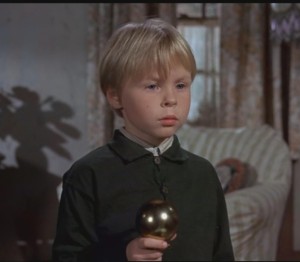
“Really? Wow. What is it, like a spell that could just magically let you appear in Hitler’s bedroom and smash his head with a claw hammer while he’s sleeping?”
Yeah, yeah, I know. Killing Hitler wouldn’t end the war. But you’re not thinking big enough. Why not cast the Travelling Spell on a squadron of Vickers? They’d be unstoppable! This is instantaneous teleportation, the war is over! I mean, don’t get me wrong, the Substitutiary Locomotion spell Eglantine is trying to get is all kinds of awesome but I think she’s missing what’s under her nose here.
What do you mean Walt? That’s what it does in the movie.

That’s not its purpose! Its a side effect. The Triguna Mekoides is the greatest prize in all the dark arts!
Well, far be it from me to question Walt Disney’s expertise in the dark arts, but what is its true purpose then if not bringing inanimate objects to life?

It’s what brought Lazarus back from the dead, Mouse. It’s resurrection. It’s the defeat of death itself. As you shall soon see…
Well.
That was ominous.
Anyway, Paul agrees to do his bit for king and country and they prepare to set off for London. Charlie doesn’t want to go, as he thinks the spell won’t work. Which, fair enough, he’s seen Eglantine cast two spells and failed at both of them already. Eglantine declares that Charlie’s just at “The Age of Not Believing” and sings while preparing the bed for take off. The Age of Not Believing is a great song, and functions as a kind of mirror image of Spoonful of Sugar. Whereas Sugar is all about the joy and magic of imagination, The Age of Not Believing is a sad reflection on growing up and losing that sense of childlike wonder. Lansbury is no Julie Andrews, of course, but she does good work here. Cosmic Creepers, meanwhile, decides that Charlie’s got a real purty mouth and chases him onto the bed just as it vanishes. The bed, with Eglantine and the three children on it, travels to London via Willy Wonka’s boat tunnel.
They arrive in London, but Emelius Browne is nowhere to be seen so Eglantine leaves the children with the bed and goes off to look for him. This of course works out well for Paul, who, as a small blonde child in blitz-era London, can have fun terrifying the locals by pretending to be The Empty Child.
The children see a man walk past with Professor Browne’s name on his suitcase and follow him. Emelius Browne (David Tomlinson, great as always) turns out to be nothing more than a huckster street magician. In the original cut, Emelius simply performs a botched magic show and the crowd leaves in disgust. In the restored version however, we get a song called With a Flair which is just….AWFUL. I don’t mean musically. It’s nowhere near the Sherman’s best work but it’s just kind of horrible. Emelius sings to the crowd that he knows that they know that he’s a fraud but that it doesn’t matter because he does everything that he does with a flair. It presents a cynical, self-loathing, contemptuous side to Emlelius’s personality that isn’t really anywhere else in the movie. Emelius is a conman, sure, but he has a certain joie de vivre and charm that makes you forgive him for that. Here though, he just comes across as sneering at his audience, not caring whether they know he’s a fraud or not. It also makes little to no narrative sense because once his act flops and the crowd disperses he desperately calls after them not to leave, seemingly forgetting that he pretty much told them to their faces that they were fools and patsies for believing anything that he said. Eglantine arrives and is horrified to discover that her mentor is less Dumbledore and more Del Boy. Emelius at first tries to sweet talk her but when he realises that she’s one of his pupils he brusquely tells her that there are no refunds and makes to leave. Eglantine turns him into a rabbit and proceeds to engage in a little casual onscreen animal cruelty.
Emelius turns back into a human and is astonished that Eglantine can actually do magic. Turns out that all the spells he’d been sending her were just nonsense words he’d gotten from an old book he’d found. Eglantine demands to see this book and Emelius gladly agrees to take them to his townhouse.
It turns out that Emelius is a squatter, who’s taken to living in a luxurious mansion that’s been evacuated because there’s an unexploded bomb nearby. This is a rather neat illustration of Emelius’ character, there is practically nothing that he cannot turn to his advantage somehow. Nothing that is, except Eglantine. The three children explore the nursery, with Paul taking a picture book called “The Isle of Naboomboo” about an island full of talking animals. Meanwhile, Emelius tries to convince Eglantine to go into show business with him. This leads to the song Eglantine, a breezy little ditty where Emelius tries to charm Eglantine while she searches the library desperately for the spell book. And we get an extra added-on verse that was originally excised that weakens the overall song, bad dubbing, blah blah blah…
She finally gets out of him that the last spell is missing from the book because it was torn in half in an a scuffle when he bought it (“the chap thought I’d given him a dud coin, I ask you”). Eglantine asks where the other half could be, and Emelius says there’s only one place it could be, Portobello Road.
I have very mixed feelings about Portobello Road. On the one hand, it’s a great song where Emelius shows Eglantine and the children around the storied street with its merchants, its dealers, its hucksters,
Hookers in a Disney movie. Fancy that.
Anyway, it is a great song. The problem is it lasts roughly the length of the CAMBRIAN PERIOD. To be honest, even in the original cut the song was too damn long by half, and huge chunks of the restored material come from this sequence making it even longer. Do you know how long the Portobello Road musical sequence lasts in the restored version?
TWO DAMN YEARS!
Okay, that’s a slight exaggeration. But it lasts ten frickin’ minutes which is totally ridiculous. And what’s worse is that so much of that is just random dance numbers and musical interludes that get shoved in with no rhyme or reason. Some Indians arrive and do a dance. Then some Jamaicans arrive and play some steel drums. Then some Scots arrive and march to bagpipes. You start to seriously wonder if every country on earth is going to get a turn. Jesus, by the time Eglantine finds that book she’ll be just in time to help Britain magically avert the Suez Crisis.
Anyway, the damn song finally ends, and Emelius and Eglantine, having failed to find the second part of the book are approached by a shifty geezer played by…holy shit, Bruce Forsyth?!
Brucie here plays Swinbourne, and he takes Eglantine and Emelius at knife point to meet his boss. For you see, Swinbourne works for the greatest villain of them all: THE BOOKMAN!
The Bookman (played by Sam Jaafe) has the other half of the book, and he and Eglantine agree to swop so that they can both get the complete spell. However, it turns out that neither half actually has the spell, merely a reference to it. It turns out the spell was written on the star medallion of the great wizard Asteroth. Bookman says that the legends tell of an island ruled by animals that Asteroth had given sentience. Bookman says that the Island of Naboomboo is simply a legend but Paul pipes up that it’s real because he has a picture book to prove it. Bookman and Swinbourne try to take the book by force, but the five escape to Naboomboo via the bed.
They crash into an animated lagoon and don’t drown because…
…
…
They crash into an animated lagoon and meet a couple of cartoon fish and end up entering a ballroom dancing competition where Emelius and Eglantine win a prize while singing “The Beautiful Briny Sea” a wonderful song that was originally written for Mary Poppins. The bed gets snagged by a fishing hook and pulled onto dry land by a sailor bear. Emelius manages to talk his way into an audience with the king, who of course is a lion and who has the star of Asteroth hanging around his neck. The King doesn’t get named onscreen but production notes give him the name Leonidas. Leonidas is a tyrannical, half-mad despot whose roars are Punctuated! For! Emphasis! and wait just a damn minute here!
Heh. I just thought of something. If Frank Millar’s a whore that means he’s got to write himself being killed or beaten up by a superhero.
Anyway, the king is pissed because he can’t find a referee for the upcoming soccer game. Emelius is asked if he knows anything about soccer, and instead of giving the correct answer, which is: “Well, I know enough to know it’s called FOOTBALL.” he lies and gets himself made referee.
The football match, between the King’s team of dirty cheating bastards and the opposing team of slightly less dirty cheating bastards, is a great comic setpiece with the various animals using their different physical attributes to try and score while stampeding over Emelius like a herd of buffalo. And he has got to be the worst referee in history. There are fouls, blatant cheating, disregard for the rules…this is isn’t football, this is madness!
Well anyway, the king’s team wins and after the match Emelius manages to filch the star of Asteroth. The king discovers it’s gone and chases after them but Eglantine manages to transform him into a cartoon rabbit and they escape safely.
Back at Eglantine’s house Emelius is shocked to discover that the star of Asteroth has disappeared in the journey through the dimensional barrier and all seems lost. We get an utterly awful extra scene where Emelius goes to the village with Charlie to buy groceries and talks to Mrs Hobday, who thanks to the awful sound-alike not only sounds nothing like Tessie O’Shea but has actually switched accents from Welsh to Scottish.
But it turns out the magic words were written down in Paul’s picture book which he found completely by chance in a random person’s house. So that was lucky. Eglantine tries saying the magic words and through the song “Substitutiary Locomotion” manages to bring various household objects to life, but they turn on them, with a pair of gloves almost strangling Emelius and Charlie being menaced by his own trousers. Eglantine manages to shut the spell off but is very discouraged. Over dinner, Emelius reassures her that she just needs a bit of practice and entertains them all with some juggling. It’s a nice scene, and really gives a sense of a family coming together, almost without the characters reading it.
Mrs Hobday then arrives, (Welsh again, for those of you playing at home) and tells Eglantine that she’s found another home for the children. Eglantine, obviously, has gotten rather found of the little blighters and Paul even happily exclaims that they have a Dad now. Emelius has grown fond of the children, but he don’t want no baby daddy drama and promptly announces that he has to go back to London. He and Eglantine have a rather sad, awkward goodbye and the children are clearly devastated.
I actually really like this, because it feels real. Of course Emelius and Eglantine aren’t suddenly going to settle down together and raise three children together. They hardly know each other. It makes sense given what we’ve already seen.
We then get a cut song for Eglantine called Nobody’s Problems. Terrible. To make things worse there was no original orchestral music for this song and it sounds like there’s someone playing a casio keyboard in the background on the restored version.
Eglantine has bigger problems to worry about however, because a Nazi raiding party led by Colonel Heller (John Ericson) has arrived by U-Boat off the coast. Of course, the Nazis never actually reached the British mainland, but the reason for the attack given in the movie makes a good deal of sense. Essentially, this is a psy-ops mission to show the British people that the Germans can land in Britain whenever they want and that there’s pretty much nothing that can stop the eventual invasion.
According to regular Unshaved Mouse commentator swanpride (hi swanpride!) almost all of this subplot is cut from the German version of Bedknobs and Broomsticks (presumably because of legal restrictions on depictions of Nazi imagery) which is why their version clocks in at an extremely svelte 89 minutes. I honestly don’t know how you’d end the movie without the Nazi stuff. Maybe they get back from Naboomboo and have cake, the end. Anyway Heller and his goons take Eglantine and the children hostage, but after Eglantine threatens to turn Heller into a rabbit he loses his patience with her and has her and the children locked in the museum in Pepperinge Eye.
Meanwhile, Emelius is sleeping on a bench at the train station when he overhears two German soldiers cutting the phone lines and talking in seriously bad German. According to my sources (hi again swanpride!) the German spoken by the actors in this movie is so bad they actually had to redub their lines for the German version just so that a German audience could actually understand them. Anyway, Emelius tries to escape and is chased by the two soldiers who he then PROCEEDS TO KNOCK OUT WITH ONE DAMN PUNCH!
I repeat: Two Nazis. One Punch. No Waiting. Emelius Fucking Browne, ladies and gentleman.
Emelius runs back to the farmhouse and discovered it’s been annexed by the Third Reich.
He breaks into Eglantine’s study and manages to overcome his own cynicism and actually believe in magic, turning himself into a rabbit. He races to Pepperinge Eye and manages to avoid the Germans and get into the museum where Eglantine is being held and leaps right into her lap.
He transforms back into a human, and convinces Eglantine that their only hope is to use Substitutiary Locomotion on the old suits of armour in the museum.

Any suit of armour I bring to life takes on a debt. You all owe me fifty Nazi scalps.
And I want my scalps!
Back at the farmhouse, Heller surveys the horizon and to his horror sees an entire army of walking suits of armour advancing on his position. While I love it, I would never say that Bedknobs and Broomsticks deserves to be considered a great movie. But it does have moments that approach greatness, and the image of an endless procession of suits of armour, solemnly intoning “Triguna Mekoides and tracorum satis dee” is one of those. It’s at once creepy (how often does a faceless, unkillable army represent the good guys?) and uplifting. You know the scene in Casablanca where the French sing La Marseillaise and drown out the Nazis? It’s not a million miles from that, and the sight of Britain’s very history rising to defend that land from its greatest enemy is a real “Fuck yeah!” moment, even if you’re not British.
One bit I find hilarious is when Heller looks up to see the accoutrements of three Scottish bagpipers playing on the cliff and the camera pans to reveal that Eglantine has raised not only the armour in the museum, but seemingly every suit of armour in the country. What’s funny is that the way it’s shot it seems that Heller’s look of terror seems to be as a reaction to the Scotsmen. It’s like: “Unstoppable steel army of death? Pah! They shall fall before the Reich! What the…oh shit THEY HAVE BAGPIPERS!”
Anyway, Heller and his men make a stand against the advancing army but ze bullets do nothing.
The Nazis are driven back and I have to say, the special effects work here is absolutely gorgeous. This is really the only scene where Bedknobs and Broomsticks steps out from the shadow of Mary Poppins and does something really unique and incredible. The effect of making the suits of armour move is pretty much flawless and holds up perfectly today.
Heller has to retreat but before he goes he blows up Eglantine’s study containing all her magical equipment. Huh. Who knew the Nazis were such sore losers? Their raid routed, Heller and his men retreat to their U-Boat and flee back to Germany.
Meanwhile, in Berlin…

“The enemy has broken through along a wide front. They’ve taken Zossen to the south and are advancing on Stansdorf.”
The destruction of her study apparently has the effect of cancelling Eglantine’s power and she falls from her broomstick while the suits of armour slowly collapse into lifelessness. Being only duck weight, she’s uninjured and she takes comfort knowing that even if she can no longer be a witch, she managed to perform some small service to her country. Of course, she could have performed a much larger service and given the RAF the travelling spell and won the war in five hours but I digress.
The film ends on a curious note, and one that I think again bears comparison to Mary Poppins. In the end of that film, you’ll recall, the Banks family are reunited as Mr Banks assumes his role as father. In Bedknobs though, while you might expect that, what we get instead is Emelius leaving Eglantine and the children to join the army. In this way, Bedknobs is almost Mary Poppins polar opposite. Whereas the moral force of Mary Poppins was directed at pushing George Banks away from his adult responsibilities as a banker and towards his children, Bedknobs instead pushes Emelius Browne away from his (admittedly new and surrogate) family and towards his adult duties, this time that of a soldier. Now obviously, defeating Nazism is far more important than any job in finance, but I do think it’s interesting that whereas Mary Poppins’ essential message was “nothing is more important than family”, Bedknobs seems to be suggesting that, yes, sometimes adult responsibilities do mean that your family has to take a back seat, if only for a while. Emelius Browne at the beginning of Bedknobs and Broomsticks is not terribly different from George Banks at the end of Mary Poppins in temperament and outlook. But whereas George Banks had to become more like Emelius Browne, Emelius Browne had to become more like George Banks.
Bedknobs was not a hit on its release, failing to make back its budget. It did pretty well at the Oscars though, nominated for five awards and winning one (best visual effects). The Age of Not Believing was nominated for best song but lost to…
You damn right.
But over the years it’s reputation has grown and it’s now something of a cult…
Um…Latin America? What are you doing, I’m in the middle of a review here.
Stop that, why are you chanting?
Comrade Crow?! What’s going on?
Otto Von Bismarck?! Everyone stop this, you’re creeping me out!
WALT! WAAALLT! What the fuck is happening?! Why is everyone chanting?! Why can I hear “All Along the Watchtower”?!

I told you. You are the Unshaved Mouse. And you will have help in your mission from a friend thought long dead.
You mean the Triguna will bring someone back to life? That’s horrible!
You don’t mean…
No.
It can’t be.
It’s impossible.
I watched you die.

“What part of “resurrection spell” is giving you the trouble? I’m back, bitch. And we have work to do.”
TO BE CONTINUED…
Scoring
Animation: 11/20
Simple and scratchy, but fun and lively too.
The Leads: 15/20
Angela Lansbury and David Tomlinson give good Lanbury and Tomlinson and the kids are pleasantly unterrible.
The Villains: 12/20
A few villains here, the Bookman, Leonidas and Heller. None of them are particularly spectacular though.
Supporting Characters: 08/20
I’m ranking this on the restored cut because I don’t have the original to hand and reviewing a movie from my own memory wouldn’t be fair. Besides, this is the version that Disney chose as their definitive cut so they have to live with that. The new cut has a lot of annoying or just plain superfluous characters.
The Music: 11/20
Again, this would probably be scored much higher if there weren’t so many mediocre or downright bad songs and new verses inserted into the new cut.
FINAL SCORE: 57%
NEXT TIME: It’s back to the canon we go as we look at Robin Hood, who will rob points from Mary Poppins and give them to Aristocats the impious scofflaw!
NEXT UPDATE: January 24th 2013
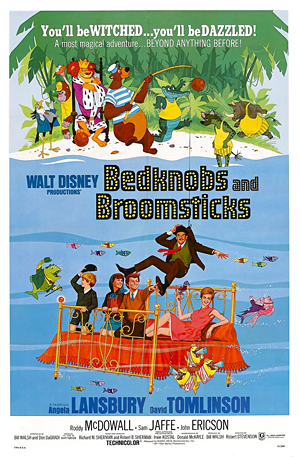
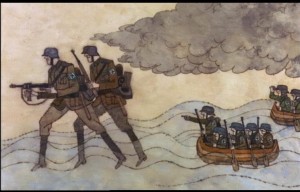
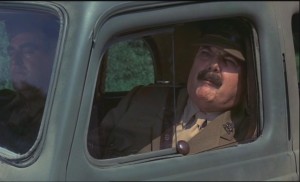






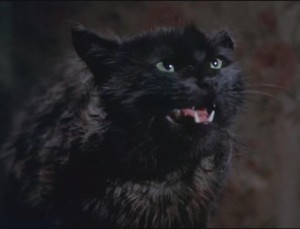
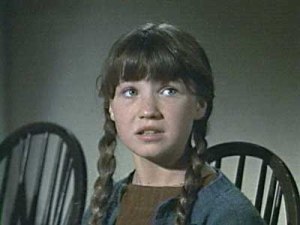



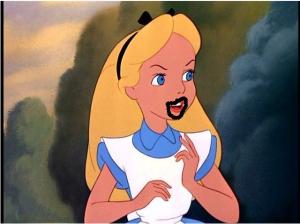

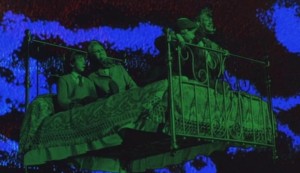
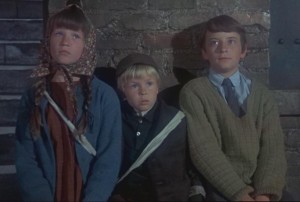

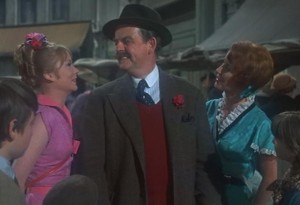
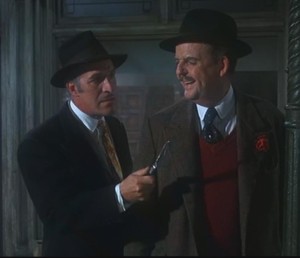
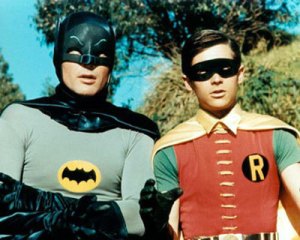





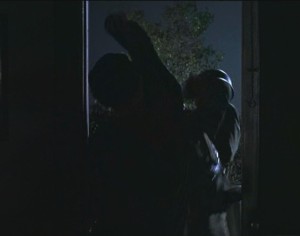

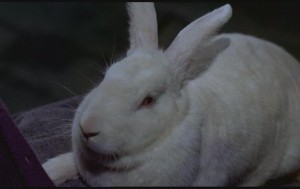


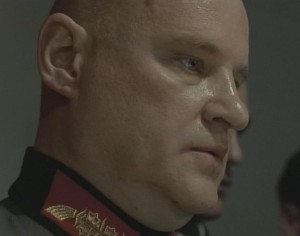

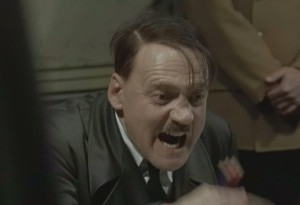




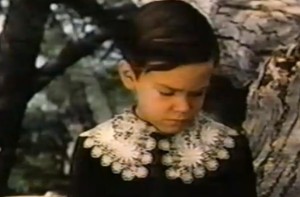



Great review unshavedmouse, even if it seemed a bit wordier than usual!
Your font seems to have changed for two paragraphs after the picture of the black cat saying, “I Never Knew My Mother.”
I’m actually quite fond of the “Like a Flair” song and find myself singing it quite often.
Of course, “Mary Poppins” is the magnum opus of Disney’s live-action musicals, but if I had to put a second place, it would probably be a tie between this film and “The Happiest Millionaire”!
Not a bad song on its own but I can totally see why they cut it. Haven’t seen Milllionaire. According to WordPress you were my top connentator last year so thanks for that!
Yeah,I have no idea why the font did that.
You’re welcome! I enjoy your reviews and you yourself have helped me develop a way in reviewing animated films as well as inspiring me to do my own tribute to the Disney canon. So thank you for that!
P.S. I love the German version of the rooster dancing in the moonlight quote!
Am I mistaken or did you reference Hamlet. “Well said Old Mole! Cans’t work in the earth so fast? Come now, you hear this fellow in the cellarage! Consent to swear!” Good times.
Good times? My father was murdered by my uncle, my mother shacked up with him, I went crazy and everyone died!
Actually, that doesn’t have to be so: http://www.kickstarter.com/projects/breadpig/to-be-or-not-to-be-that-is-the-adventure
That was quiet the weekend.
Sorry, I guess I didn’t explain that very well. No, they didn’t cut the Nazi’s completely…they just manage to gloss (mostly) over the fact that they are German Nazi’s. For example, when the signs are painted over, in the German dubbing they explain it’s done in case “the enemy plans an invasion”, but they never really mention who the enemy is.
The German cut works like this:
First: Naturally you have to forget all the scenes which were added later on.
Second: No Home guard song. The whole scene is missing, which might be for the best since it would mean nothing for the German audience and really, the Home Guard never turns up later again, so the scene is really pointless in the grand scheme.
Third: No “Age of non beliving” – the one thing I think is somewhat sad. The instrumentals of the song are still there in the traveling scenes, but it isn’t sung once in the whole movie.
Fourth: No “Emmeline”. This version cuts from the children exploring the play room to Emelius getting turned into a rabbit because Emmeline got feed up with him.
Fifth: The star doesn’t get lost. It is never seen again, but the movie cuts directly to Emmeline testing out the spell. (Again, this is in my eyes a change for the better).
Sixth: The Nazi scenes are (I think) shorter, but they are still there…basically Emmeline sees the soldier, tries the phone and the scene ends with him taking the phone from her, than a short talk in the office, where it is explained that this is only a test invasion (but naturally they would never harm women and children – well, it’s not said that way, but it is suggested), and then the scenes go as you descriped, with Emelius going to them aso.
Seven: Emelius doesn’t go off to war at the end. The movie ends with Emmeline saying that she would have never been a really good witch either way, and the children being happy that they have at least the knob. It’s looks more like Emmeline singlehanded defeated the “enemy”, and that they will now live happily ever after. (Naturally that the children are war orphans is also never mentioned, in the whole movie…I mean it’s pretty clear that they are orphans, but it looks like they simply grew up in an orphanage for some reason or another).
The whole thing with “the enemy” is a little bit amusing, but it works…I saw the movie first at a very young age, long before I had any idea of history, and I really didn’t realize that the Germans are basically “The enemy”. Basically, the German Version is the sugarcoated version of the movie, where even war is barely an inconvenience. (I like the movie nevertheless, in both versions…just not in the overly long one. I agree, there was a reason the cut this stuff. And as much as I like the Portobello song, no song is that good that it can take up 10 minutes of a movie).
I feel btw your pain about the changed version – and the redubs. It’s the worst you can do to a movie.
Oh, btw, the use of Nazi imagery is not restricted in Art. Meaning, you can show it in movies, as long as the movie in itself is not Nazi propaganda. Movie makers often avoid those signs nevertheless, to be on the save side, but theoretically, they can use it. They are just not allowed to show it in a positive light.
You are a font of information as always.
Great summing up of the feels of the two movies in just to excerpts from each. And then the continuing descriptions of how each movie reflects its studio at the time. And your paralleling Tomlinson’s two characters in the two movies. Brilliantly, sublimely poetic. Interesting that you should say Disney was booming that time considering how flushed out its budget was by then (it is a point in time whose cheap animation is notable enough to define it), but I guess there was at least plenty of commercial success at the time. Also, I was half expecting Sarcastic Map of Wartime Europe to show up at that mention of Wartime Europe in the movie. Then I remembered Europe was dead. Poor continent. Lucky for it, Von Bismarck cared enough for the German part of it to go back on his irritated storm-out and make a final appearance to chant it back to life.
I don’t seem to remember the extended cuts at all, and I’m apparently lucky for that. Maybe you’ve got a “they changed it, now it sucks” bias, but I’m not liking the sound of any of these extra bits. Is the change in font a deliberate reference to the “broken” feel the extended version has? Though it doesn’t change during the first extended bits so maybe I’m wrong.
I love the continuation of the magic brooms gag. Even beyond the grave. I wonder why Walt loved enchanted brooms so much anyhow? And that Monty Python reference was just plain perfect. So was Paul’s suggestion of Hitler assassination. Of course, why not just eliminate the middleman and make the bed appear straight on top of Adolph and squash him? Give the guy two deathbeds, heh heh.
I wonder if Eglantine et al’s Super Not Drowning Skills was due to the fact that they were in cartoon water. The fact that Asteroth’s Star couldn’t survive in the live-action world supports this. Though if that’s the idea, you’d think humans shouldn’t be able to survive in that world due to not being able to breathe cartoon air. Yeah, that scene’s weird. And fancy a ballroom dance competition held by fish. Who said legs were required for jumping and dancing? And call Naboomboo soccer madness if you will, but at least it’s not at the level of madness that the balls are sentient creatures and executions are ordered during play (which is a relief because Leonidas likely personally executes his subjects by mauling and eating their remains).
Too bad Eglantine didn’t use the “last place first” rule looking for that spell. Turns out Emelius did have the spell in print after all. And watch it the nicknames, Mouse. That’s Generaloberst von I’m-a-Little-Sugar-Bowl to you! Two handles! Count ’em! Stands to reason, really. In the Disney universe, teapots are kindly, but sugar bowls? Kind of dicks. Remember Merlin’s nearly trying to smash the rest of the dishes trying to butt ahead in line? I bet if that thing ever met Baloo it would probably bop him on the nose with its spoon.
Kind of cool to see that you can have a definite sense of empathy for British patriotism being Irish. Maybe I’m generalizing here, but I’d imagine that would be akin to a Canadian being able to admire patriotic moments for the United States in works of fiction, which personally can often be hard.
And I figured Eglantine’s powers were nullified because the poisoned dragon’s liver was the source of them, but then again, that denounces the awesome theory of her deal with the devil, so who knows, I guess Panchito was just being stingy with the hocus pocus. Who expects Nick the Chick to be fair? I guess Eglantine’s a bit of a sore loser as well, as she apparently gave the Crimson Cockerel Isaac Hayes’s soul for beating her song out. Poor fella.
And finally, Nice going, Rob. I bet you wouldn’t be so gutsy if Bert’s chalk redcoats hadn’t dissolved, would ya?
And on a completely unrelated note: What happened to the “next page” arrows? They seem to have vanished into Bahia since the format update.
Hadn’t noticed that and that is a real pain. I’ll see if there’s a way to fix it.
For what it’s worth … I’m old enough to have seen this movie in theatres when it came out, but apparently not old enough to have remembered that “With a Flair” wasn’t in the original theatrical cut, because I thought it was. It was definitely on the soundtrack album (which I had), and was one of my favorite songs (actually I like pretty much all of them, though “Age of Not Believing” was a little too treacly for my tastes at the time … I don’t remember “Nobody’s Problems” being on the soundtrack, however).
Anyhow: seeing it may be different than hearing it on the soundtrack album, but I always just took it as the normal musical theatre artistic license that a person can burst into full song with a chorus and dancers and full orchestral accompaniment and everyone spontaneously just sings along and then sometimes afterward they all remember it and sometimes it turns out to be just the person’s own internal monologue and no one has a clue. The basic conceit … “I’m a conman, and deep down everyone knows it, but I make it look so good they all WANT to believe” … well, for me that does an excellent job of summing up Emelius Browne’s philosophy.
On the subject of the soundtrack, it definitely contained additional verses to “The Old Home Guard”, compared to the movie but I’m at a complete loss to say what they were; between a reference pool predating my own existence by 2+ decades and my general unfamiliarity with any kind of British accent I understood maybe 50% of the words.
I know this review is several years old but I just have to say that the ‘pimp’ caption is my favorite thing in the world.
Ah necroposting. Thanks very much!
I have decided to imperil my mortal soul by trafficking in ‘Foul Arts Necromantic’ to point out that while Col. Heller’s brain is almost certainly whispering “This cannot possibly be happening, this is completely unprecedented in my experience and is therefore absolutely NOT Happening” throughout the debut of those reanimated relics, it’s not unlikely that a blast from those bagpipes – presumably triggering some memory of having ended up on the wrong end of the Highland Regiments during the First World War – was the cold shiver of reality that cut through the cosy warmth of nice, comfortable denial in which the Colonel draped himself.
After all, it’s easy to deny the evidence of your senses when confronted with the Impossible but trying to deny hearing a set of bagpipes?